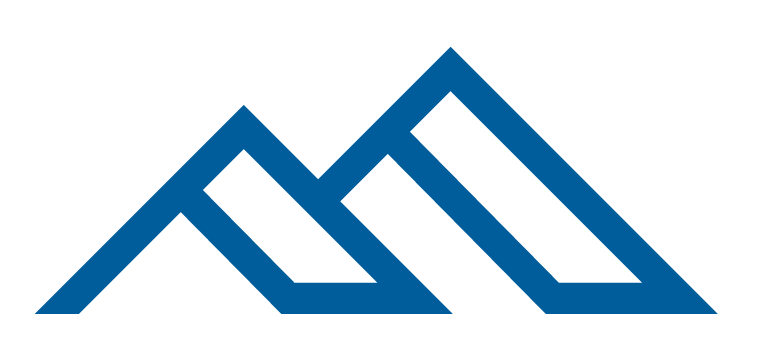I Wish I Had Known: Dean Tyler

Dean Tyler is currently a Director at MCG Capital Advisory, a financial due diligence (“FDD”) boutique after having spent nearly a decade in the FDD group at PwC based in New York. Dean started his financial services career at PwC South Africa as an auditor. Throughout his career, in addition to his client facing engagement and deal execution responsibilities, Dean has sought and assumed various training and mentoring roles.
We sat down with Dean to learn from his experience in financial due diligence and M&A services.
Deal Guide: The visibility of FDD as an M&A career path has been on the rise. Roll back the tape ten or more years, all that people really talked about was investment banking, private equity, and deal attorneys. How did you first get into FDD given its historically lower profile? What made you follow this path for your career?
DEAN: I began my career in audit, and while it gave me a solid technical foundation and exposure to a range of industries, I quickly realized it wasn’t something I saw myself doing long term. I shared this with a partner in the Audit practice at PwC New York and mentioned that I was interested in transitioning into Advisory. Of course, “Advisory” can mean a lot of different things, so she encouraged me to speak with a few people across various groups to get a better sense of what might be the right fit.
After a couple of conversations, I connected with someone in Financial Due Diligence and that’s when everything clicked. The blend of fast-paced deal work, strategic thinking, and direct impact on investment decisions really appealed to me. From that point on, I knew this was the path I wanted to pursue, and the rest is history.
Deal Guide: What did you wish you knew earlier in your career? How would learning this earlier have benefited you?
DEAN: One of the most valuable lessons I’ve learned, especially over the past few years, is the importance of staying grounded in the broader perspectives of both the client and the seller (during buyside diligence) throughout a deal process. Early in my career, particularly during my time at PwC, I often worked on fast-paced, high-pressure deals with numerous moving parts and internal teams. In that environment, it was easy to become laser-focused on the specific tasks and deliverables assigned to me. While that focus is essential, I’ve come to appreciate how much more effective you can be when you take a step back and truly consider the full context.
From the client’s perspective, our diligence work is just one piece of a much larger, often complex deal process. They’re juggling interactions with the seller, aligning their internal stakeholders and investment committee, and coordinating with multiple advisors, all while trying to meet tight timelines. Keeping this in mind helps you communicate more clearly, anticipate their needs, and ultimately deliver advice that is more thoughtful and actionable.
When it comes to interacting with the management teams of target companies during buy-side engagements, I’ve learned to adapt my approach, something I wish I had done earlier in my career. At MCG, I often work with founder-led businesses that may be navigating the M&A process for the first time. These aren’t large corporates with full deal teams, they’re entrepreneurs who’ve built something from the ground up and are now being asked to open their operations to a diligence process they may not fully understand. Approaching these conversations with empathy and curiosity, not just a checklist, has led to far more productive and insightful discussions. Hearing the origin stories and personal journeys behind these businesses has made the work more rewarding and has helped me grow into a more well-rounded and thoughtful professional.
Deal Guide: How were you shaped by the mentorship you received in your career?
DEAN: Mentorship played a pivotal role in shaping me into the deal professional I am today, particularly during my transition from audit into FDD. I made the move after nearly five years in audit, joining the FDD team as an experienced senior associate so the learning curve was steep.
On my very first FDD engagement, I had the opportunity to work with a few senior team members at PwC New York who went beyond simply managing the project, they truly took me under their wing. They became role models for me, not just in terms of technical capability, but in how they carried themselves, communicated with clients, and led teams under pressure. I observed and actively worked to emulate the way they approached deals: staying calm during high-pressure moments, digging into the client’s deal thesis to tailor our analysis, and navigating challenging client dynamics with professionalism and empathy.
Their guidance accelerated my development and gave me a clear picture of what great looks like in this field. I’m incredibly grateful for those early mentors and the example they set. They made a lasting impact on how I approach my work today.
If I could offer one piece of advice to anyone just starting out or still finding their footing in this career: seek out people who are not only successful, but who also demonstrate values that align with yours, especially those who take the time to invest in and develop their teams. Connect with them regularly, ask thoughtful questions, and try to understand what makes them effective professionals. Having someone to look up to gives you a clearer path for your own development. It’s important to stay true to your own style and identity, but modeling your growth after people you respect can help you build critical skills more effectively and with greater purpose.
Deal Guide: Over your career thus far, what have been the most profound changes in the FDD space? How do you think AI will change the delivery of FDD services or the industry going forward?
DEAN: Over the course of my career, I’ve seen several meaningful shifts in the FDD space, ranging from operational changes within firms to the evolving expectations of clients, particularly in private equity. Since I’ve already touched on the client side, I’ll focus here on the operational side, which has undergone a remarkable transformation.
One of the first major shifts was the move toward leveraging offshore delivery centers in lower-cost regions. When I started in FDD, teams were almost entirely co-located and worked in person. We typically staffed larger teams and juggled only one or two deals at a time, which often meant long hours and late nights. The shift to working with offshore colleagues brought a steep learning curve, we had to adapt to new ways of collaborating, mostly via email or phone, at a time when virtual teamwork wasn’t yet the norm.
But once those processes matured, the impact was significant. We were able to streamline delivery, run smaller local teams, and extend our productivity by having work progressed overnight. More importantly, it allowed onshore professionals to focus on more complex client-facing matters and deliver deeper insights. In many ways, it was a precursor to the remote work models that became standard after COVID and set the stage for more agile deal execution.
The next profound shift, and one I’m personally very passionate about, is the rise of AI. I’ve been fortunate to contribute to tech-enabled initiatives both at PwC and now at MCG, and I believe AI represents the next major unlock for our industry.
In FDD, we deal with a wide range of repeatable, manual tasks that are necessary but not always the best use of a senior professional’s time. Take, for example, drafting sections of the diligence report. While the report is essential, much of its content is a synthesis of findings that, ideally, have already been discussed with the client. If AI can help generate an initial draft of the report, or even specific sections, using those already communicated findings, we can shift more of our energy to higher-value activities, such as exploring deal risks, identifying value levers, or providing more tailored recommendations.
To be clear, this isn’t about doing less work, it’s about doing better work. AI helps us operate more efficiently so that we can focus our time where it matters most: solving complex problems, serving our clients thoughtfully, and driving better deal outcomes.
